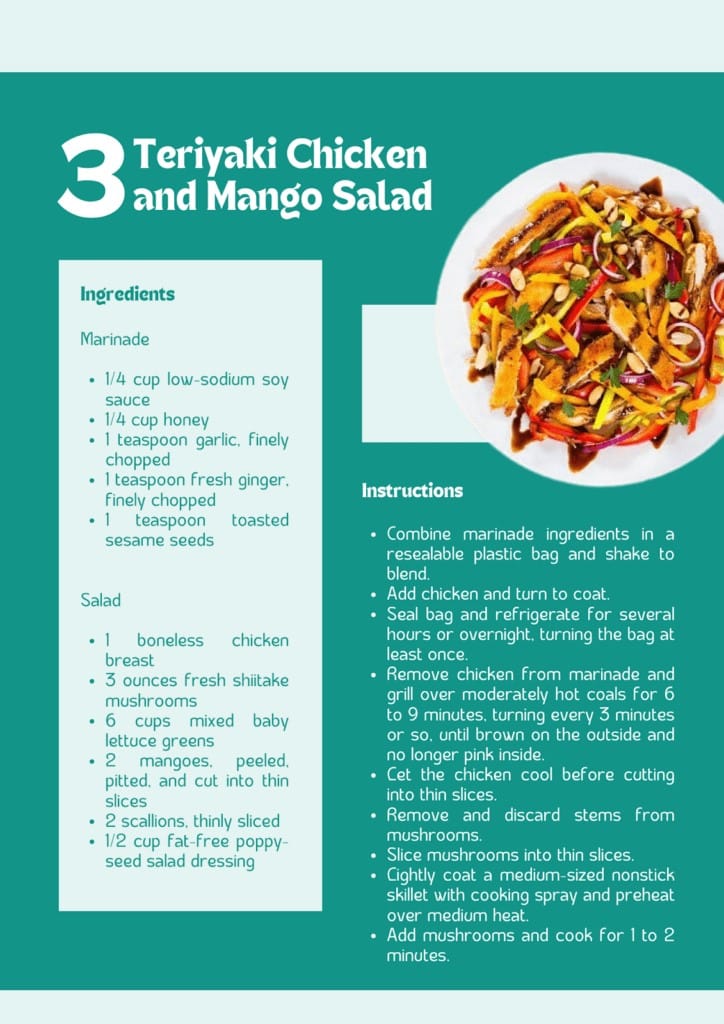Enhancing Flavor and Nutrition: The Benefits of Spices and Herbs in the Diet of Older Adults
Maintaining a healthy diet becomes increasingly important for our overall well-being as we age. However, for many older adults, the thought of eating bland, unseasoned food can be unappealing.
Fortunately, spices and herbs offer a simple and delicious way to enhance the flavor and nutritional value of meals, while also providing a variety of health benefits.
In this article, we will explore the many advantages of incorporating spices and herbs into the diets of older adults, as well as provide practical tips and recipe ideas to make it easier to get started.
The Benefits of Spices and Herbs
Herbs and spices are a great way to add flavor to your meals without the need for extra calories, salt, sugar, or fat. They offer a wide range of possibilities in the kitchen, and can be used in various ways. Herbs and spices can be incorporated into your cooking process, or simply used as a garnish to add visual interest and more flavor to your meal.
However, herbs and spices do not only enhance the flavor of your meals or add a visual appeal, they are also proven to have several health benefits, including;
- Antibacterial and antifungal properties: According to a study from the National Institute On Health, many herbs and spices like Oregano, thyme, cinnamon, cloves, and cumin are rich in antibacterial and antifungal properties that can help fight off disease.
- Anti-inflammatory effects: A study states that certain herbs and spices like turmeric are famous for their anti-inflammatory properties that can give relief to inflammatory conditions like arthritis and metabolic syndrome.
- Immune system support: Certain herbs like Echinacea (usually consumed in tea or supplement form) can help reduce cold and flu symptoms when consumed in tea or supplement form, according to one study.
- High antioxidant content: Cloves, peppermint, allspice, cinnamon, oregano, thyme, and sage are among the herbs and spices that are rich sources of antioxidants, according to a research from the BioMed Central.
- Potential disease treatment: Various herbs and spices have been shown to help treat and reduce the risk of many diseases, including some cancers, diabetes, asthma, and heart disease.
- Heart health support: Some herbs and spices like basil, dill, ginger, and fenugreek can help lower cholesterol levels and support heart health.
Read Also: Cancer and Nutrition: A Senior’s Guide To Nutritional Considerations During Treatment
10 Beneficial Herbs and Spices For Older Adults
As people age, some may notice a decline in their ability to taste food. This can result in adding more salt to make meals more flavorful. However, consuming excessive sodium can increase the risk of high blood pressure, heart disease, stroke, and kidney disease.
Although sodium is a necessary nutrient, the average person consumes about 3400 mg per day, which is more than twice the recommended amount. For healthy adults, the daily recommended intake of sodium is only 1500 mg.
Instead of salt, try flavoring your foods with fresh herbs and spices like the ones below.
- Cinnamon:
Adding cinnamon to your diet may help reduce muscle soreness caused by exercise. Women who consumed about 1.5 teaspoons of cinnamon daily for six weeks experienced a decrease in muscle soreness, as per a study published in the International Journal of Preventive Medicine. In addition, cinnamon can also provide heart-healthy benefits by reducing high blood cholesterol and triglyceride levels.
- Garlic:
Garlic may keep blood vessels flexible, especially in women, and reduce cholesterol and triglycerides. Johns Hopkins Medicine warns to check with your doctor before taking ginger while on chemotherapy drugs.
- Ginger:
Ginger not only helps soothe your stomach but also makes you feel fuller and burn more calories. Overweight men who consumed breakfast with ginger tea felt more satisfied and consumed fewer calories throughout the day. Additionally, the men who drank ginger tea burned about 40 more calories while digesting their meal.
- Vanilla:
Wearing a vanilla-scented patch can cut your intake of sweet foods in half. Vanilla helps offset the pleasure derived from sweet foods.
- Black Pepper:
A substance in black pepper called piperine may help block the formation of new fat cells, according to a recent study on mice from the Journal of Agricultural and Food Chemistry.
- Turmeric:
Turmeric can help reduce inflammation in the brain, which has been linked to Alzheimer’s and depression. It can also reduce pain and swelling in those with arthritis.
- Sage:
Sage can improve brain function and memory. It inhibits the breakdown of acetylcholine, which is a chemical messenger in the brain.
Read Also: Food for Thought: Boosting Seniors’ Brain Health with the Right Diet
- Cayenne Pepper:
Cayenne pepper can relieve pain caused by arthritis and diabetes-related nerve damage. It can also help with ulcers by reducing excess stomach acid and increasing blood flow.
- Peppermint:
Peppermint oil can relieve the pain of irritable bowel syndrome (IBS) and reduce abdominal bloating. It may also be useful in fighting nausea when used in aromatherapy.
- Rosemary:
Rosemary contains rosmarinic acid, which has been shown to suppress allergic responses and nasal congestion.
Read Also: Dietary Restrictions? No Problem: Supporting Seniors with Special Needs
How to Use Herbs and Spices In Senior’s Meals
Using herbs and spices in cooking can enhance the taste of food without adding excessive fat or sodium, making them an excellent choice for healthy cooking. Utilize these recommendations to craft delectable and nourishing dishes.
Tips for getting the most of herbs and spices
- To get the most flavor from fresh herbs, cut the leaves finely using kitchen shears or a sharp knife.
- Whole spices should not be ground until needed; crushing berries and seeds or grating nutmeg or cinnamon sticks just before use will ensure maximum flavor.
- Dried herbs have more flavor than fresh herbs, and powdered herbs are more potent than dried flakes. If a recipe calls for fresh herbs but you only have powdered herbs, use less than the amount specified.
- For cold recipes like dips or salad dressings, refrigerate for at least a couple of hours before serving to allow the flavors to blend. Add fresh herbs and spices to hot dishes as close to serving time as possible for the most flavorful results.
- Dried herbs and spices should be added early in the cooking process to avoid a powdery taste.
- Dried herbs and spices lose flavor over time, with whole spices lasting longer than ground or powdered spices. Store dried herbs and spices in a cool, dry, dark place, and use powdered herbs and spices within a couple of years.
Using Herbs and Spices To Give Your Food A Boost
- To achieve a well-balanced dish, consider the strength and form of the ingredients used.
- Weaker-flavored ingredients require less seasoning to achieve a satisfactory taste.
- Dried herbs are stronger than fresh herbs, and powdered spices are stronger than crumbled spices.
- A useful guide for seasoning amounts: 1/4 tsp powdered = 3/4 to 1 tsp dried crumbled = 2 to 3 tsp fresh.
- Finely chop fresh herbs to release more flavor.
- Use whole spices in long-cooking dishes and add herbs towards the end of cooking to prevent flavor loss.
- Crush dried herbs before adding them to quick- or medium-cooking dishes to release their oils.
- Choose a combination of strong and mild flavors that complement both the food and the strong herb when combining herbs and spices.
- Start with a small amount of seasoning and add more if needed, as it is difficult to remove an excess amount.
Common Herbs And Spices And Foods They Complement
| Herbs and Spices | Foods They Complement |
|---|---|
| Basil | flavoring for sauces, pesto sauce, dressings, infusing oils, vinegars, chicken, fish and pasta dishes. |
| Cinnamon | Used in baking, seasoning hot cereals and puddings. |
| Cumin | Adds flavor to soups, stews and sauces. |
| Curry | Good with meat, poultry and stews. |
| Coriander | Can be paired well with beef, chicken, grilled fish, pickles and pork. |
| Cilantro | Cilantro is best used in salsa and guacamole and compliments well with lemon and lime for marinades. |
| Dill | Wonderful with fish, potatoes and eggs. |
| Mint | Compliments pork, potatoes, peas, chocolates, and fruits. |
| Oregano | Used in a variety of sauces, soups and salads, and tasty with poultry, beef, veal, lamb and vegetables. |
| Paprika | Good with seafood, vegetables, potato salad and eggs. |
| Parsley | Great with fish, chicken, potatoes, vegetables, and eggs. |
| Rosemary | Delicious with chicken, lamb and pork. |
| Sage | Its flavor holds well when cooked in long periods, best used for stuffing, sausage, pork roast, and hamburgers. |
| Savory | Used in salads, stuffing and sauces. |
| Tarragon | Usually used with chicken, fish, veal and egg dishes |
| Thyme | Tasty with chicken, veal, salads and vegetables. |
Healthy Herbs and Spices Recipes and Meal Ideas For Older Adults
Herbs and spices not only enhance the taste and appearance of food but also offer various health benefits. However, it is crucial to use them promptly to maximize their nutritional value. Fresh herbs can be stored in the refrigerator for a week or two, while dried herbs can last for 1-3 years, and ground spices for about 2-3 years. To make the most of their nutritional benefits, it is necessary to use them within these time frames.
Here are some healthy recipe ideas that incorporate herbs from John Hopkins Medicine that you may follow:



Bottomline
Incorporating spices and herbs into the diet of older adults can be an effective way to improve flavor, enhance nutrition, and promote overall health and well-being. By exploring the many different options available, and experimenting with new flavor combinations, older adults can continue to enjoy delicious and satisfying meals that also support their health goals.
Whether you are an experienced cook or a novice in the kitchen, there are countless ways to incorporate spices and herbs into your diet, so why not start exploring today?
By taking small steps to enhance the flavor and nutrition of your meals, you can make a big difference in your overall health and quality of life.
To learn more about cooking and preparing healthy meals for your older loved ones, check out our Cooking For Seniors: A Guide To Healthy Techniques.
Sources:
- https://myhealth.ucsd.edu/YourFamily/OlderAdults/NewsRecent/3,85101
- https://www.udel.edu/academics/colleges/canr/cooperative-extension/fact-sheets/using-herbs-and-spices/
- https://www.unlockfood.ca/en/Articles/Sodium/A-Matter-of-Taste.aspx
- https://www.seniorsguide.com/senior-health/a-beginners-guide-to-herbs-and-spices/






